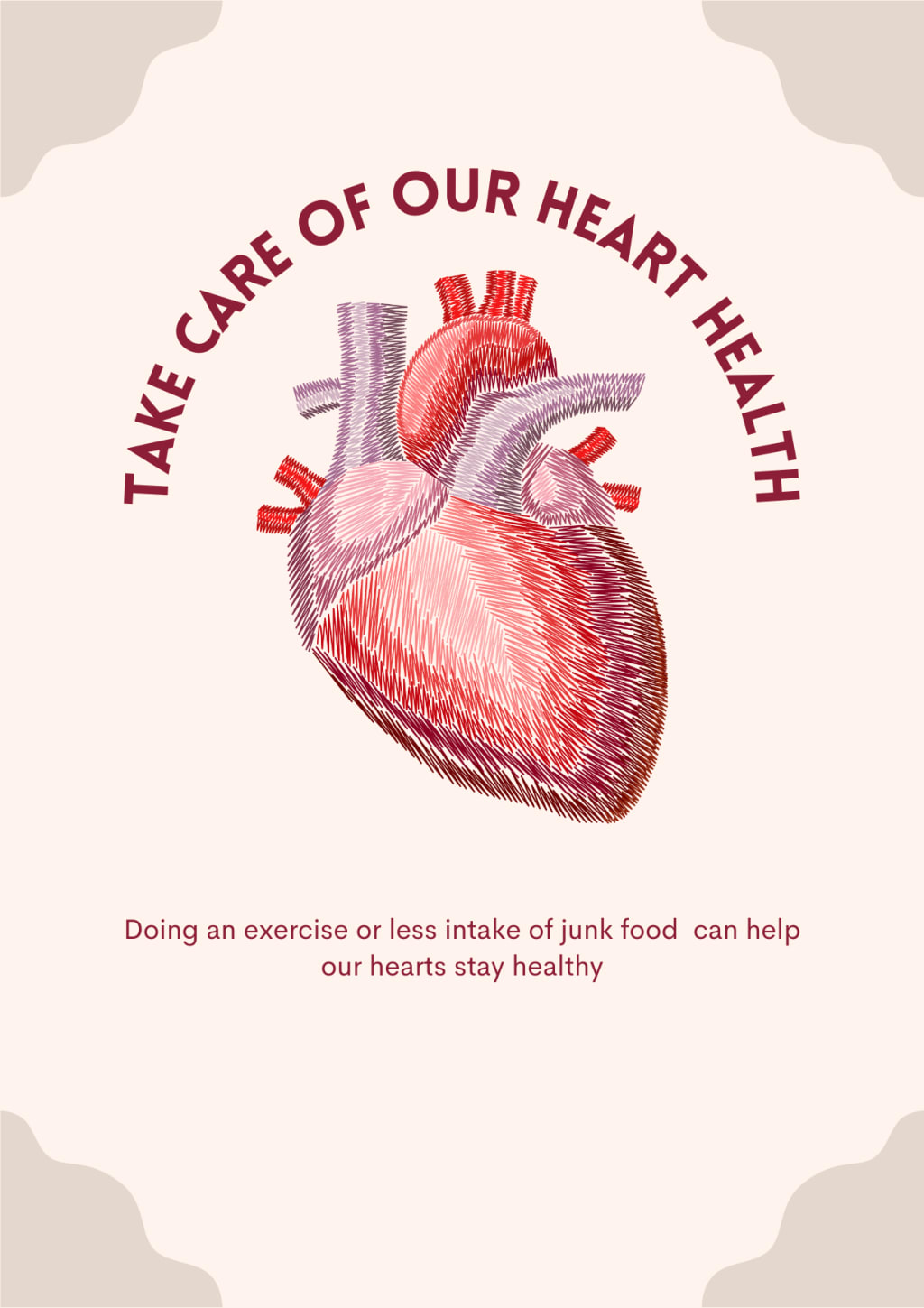
When we think about junk food, the first thing that comes to our mind is indulgence. Who doesn't love the taste of a burger, fries, or a bag of chips? They're quick, convenient, and satisfy our cravings in an instant. However, what we often forget is the harm they can cause to our health, especially our heart health. In this article, we will explore the impact of junk food on our hearts and what we can do to protect ourselves.
The Link Between Junk Food and Heart Disease:
Junk food, also known as highly processed food, is usually high in sugar, salt, and unhealthy fats. A diet high in these nutrients can contribute to a number of health problems, including obesity, high blood pressure, and high cholesterol, all of which increase the risk of heart disease.
A study conducted by the American Heart Association found that people who consume more fast food are more likely to develop cardiovascular disease than those who don't. The study found that fast food intake was associated with a higher risk of obesity, type 2 diabetes, and high blood pressure, all of which are major risk factors for heart disease.
Junk Food and Cholesterol:
One of the most harmful components of junk food is cholesterol. High levels of LDL (low-density lipoprotein) cholesterol can clog the arteries and lead to heart disease. Most junk food contains high levels of trans and saturated fats, which increase LDL cholesterol levels.
Saturated fats are commonly found in animal products such as beef, pork, and cheese. Trans fats are found in processed foods such as cakes, biscuits, and margarine. These fats are known to increase LDL cholesterol levels in the blood, which can lead to atherosclerosis (hardening of the arteries).
Junk Food and High Blood Pressure:
Another risk factor for heart disease is high blood pressure. A diet high in salt can increase blood pressure, putting extra strain on the heart and arteries. Many junk foods, especially fast food, are high in salt. For example, a single serving of fast food can contain more than the recommended daily intake of salt.
Junk Food and Obesity:
Obesity is a major risk factor for heart disease. Junk food is often high in calories and low in nutrients, which can lead to weight gain. In addition, junk food can increase cravings and lead to overeating. A study published in the Journal of the American Medical Association found that people who ate fast food more than twice a week gained more weight and had a higher risk of obesity than those who ate it less frequently.
What Can We Do to Protect Our Hearts?
The good news is that we can take steps to protect our hearts from the harmful effects of junk food. Here are some tips:
1. Choose whole foods: Whole foods, such as fruits, vegetables, whole grains, lean protein, and healthy fats, are naturally low in salt, sugar, and unhealthy fats. They're also high in fiber, vitamins, and minerals, which can help protect our hearts.
2. Cook at home: Cooking at home allows us to control what goes into our food. We can choose healthier ingredients and limit the amount of salt, sugar, and unhealthy fats we consume.
3. Limit junk food intake: We don't have to eliminate junk food from our diet completely, but we should limit our intake. Instead of eating it every day, we can treat ourselves once a week or on special occasions.
4. Read labels: When buying packaged food, we should read the labels carefully. Look for foods that are low in salt, sugar, and unhealthy fats. Choose foods with higher fiber content and look for healthy fats such as unsaturated fats.
5.Be mindful of portion sizes: Junk food is often high in calories, so it's important to be mindful of portion sizes. Instead of eating a large serving, we can opt for smaller portions or share with a friend.
6. Drink plenty of water: Water is essential for good health, including heart health. Drinking plenty of water can help flush out toxins from our body and keep our heart healthy.
Conclusion:
In conclusion, junk food may be tempting, but it's important to remember the harmful impact it can have on our heart health. Consuming junk food regularly can increase our risk of heart disease, obesity, high blood pressure, and high cholesterol. By choosing whole foods, cooking at home, limiting junk food intake, reading labels, being mindful of portion sizes, and drinking plenty of water, we can protect our hearts and improve our overall health. It's time to take control of our diets and make healthier choices for ourselves and our hearts.





Comments
There are no comments for this story
Be the first to respond and start the conversation.